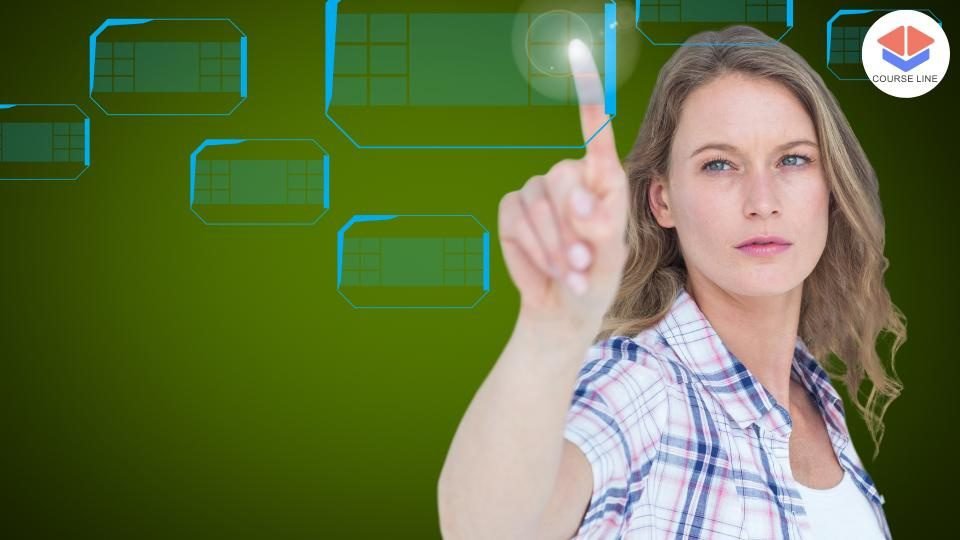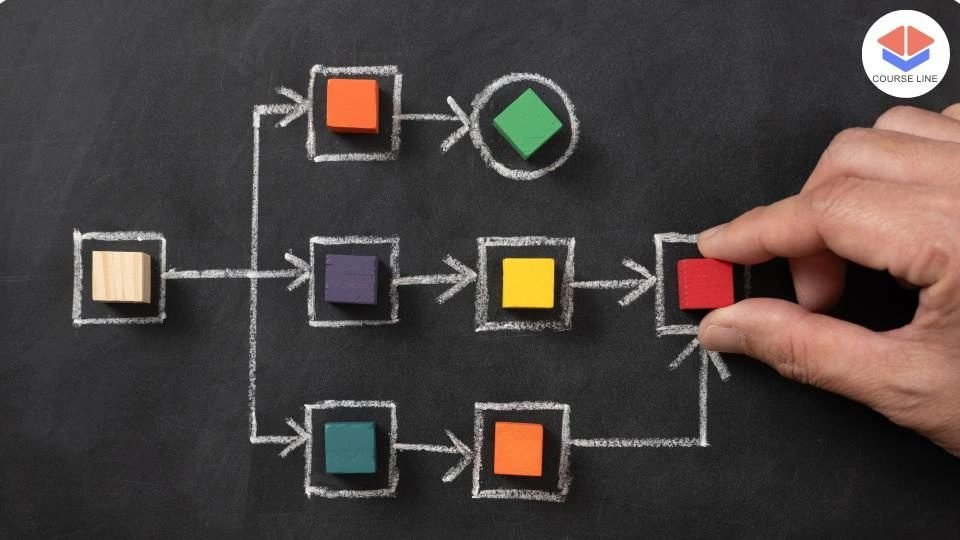Course Features
Price
Study Method
Online | Self-paced
Course Format
Reading Material - PDF, article
Duration
15 minutes
Qualification
No formal qualification
Certificate
At completion
Additional info
Coming soon
- Share
Overview
The Access to Higher Education Diploma in Computer Science & Digital Technology offers an ideal route for adult learners and career changers looking to enter the fast-growing tech sector through university study. Covering core topics such as programming, databases, networking, web development, cybersecurity, and digital ethics, the course builds a solid understanding of how modern technology works and is applied across industries.
In the initial modules, students explore the fundamentals of computer science, including the history of computing, basic hardware and software architecture, number systems, algorithms, and logical thinking. This lays the groundwork for future study and real-world problem solving. The course then moves into hands-on programming using beginner-friendly languages such as Python, allowing learners to grasp key coding structures like variables, loops, functions, and debugging.
The diploma also includes a dedicated section on web development, covering HTML, CSS, and JavaScript to help learners create functional and well-structured websites. Students will gain an understanding of how websites are built, styled, and made interactive for users. The curriculum then introduces relational databases, SQL, and the principles of information systems used in business and data management today.
Cybersecurity is a core element of this course, where learners will discover how networks function and how digital threats can be identified, mitigated, and prevented. Lessons also cover data protection laws, encryption techniques, and safe online practices—all crucial in today’s data-driven world. Modules on operating systems and software development lifecycle processes further deepen students’ technical acumen and understanding of modern IT infrastructure and development workflows.
Finally, the course explores the broader social impact of technology, from digital inclusion and accessibility to emerging innovations like AI, blockchain, and the Internet of Things (IoT). It concludes with academic and study skills modules that help learners prepare strong UCAS applications, write personal statements, and build the critical thinking, time management, and research skills needed for success at university.
Who is this course for?
The Access to Higher Education Diploma in Computer Science & Digital Technology offers an ideal route for adult learners and career changers looking to enter the fast-growing tech sector through university study. Covering core topics such as programming, databases, networking, web development, cybersecurity, and digital ethics, the course builds a solid understanding of how modern technology works and is applied across industries.
In the initial modules, students explore the fundamentals of computer science, including the history of computing, basic hardware and software architecture, number systems, algorithms, and logical thinking. This lays the groundwork for future study and real-world problem solving. The course then moves into hands-on programming using beginner-friendly languages such as Python, allowing learners to grasp key coding structures like variables, loops, functions, and debugging.
The diploma also includes a dedicated section on web development, covering HTML, CSS, and JavaScript to help learners create functional and well-structured websites. Students will gain an understanding of how websites are built, styled, and made interactive for users. The curriculum then introduces relational databases, SQL, and the principles of information systems used in business and data management today.
Cybersecurity is a core element of this course, where learners will discover how networks function and how digital threats can be identified, mitigated, and prevented. Lessons also cover data protection laws, encryption techniques, and safe online practices—all crucial in today’s data-driven world. Modules on operating systems and software development lifecycle processes further deepen students’ technical acumen and understanding of modern IT infrastructure and development workflows.
Finally, the course explores the broader social impact of technology, from digital inclusion and accessibility to emerging innovations like AI, blockchain, and the Internet of Things (IoT). It concludes with academic and study skills modules that help learners prepare strong UCAS applications, write personal statements, and build the critical thinking, time management, and research skills needed for success at university.
Requirements
The Access to Higher Education Diploma in Computer Science & Digital Technology offers an ideal route for adult learners and career changers looking to enter the fast-growing tech sector through university study. Covering core topics such as programming, databases, networking, web development, cybersecurity, and digital ethics, the course builds a solid understanding of how modern technology works and is applied across industries.
In the initial modules, students explore the fundamentals of computer science, including the history of computing, basic hardware and software architecture, number systems, algorithms, and logical thinking. This lays the groundwork for future study and real-world problem solving. The course then moves into hands-on programming using beginner-friendly languages such as Python, allowing learners to grasp key coding structures like variables, loops, functions, and debugging.
The diploma also includes a dedicated section on web development, covering HTML, CSS, and JavaScript to help learners create functional and well-structured websites. Students will gain an understanding of how websites are built, styled, and made interactive for users. The curriculum then introduces relational databases, SQL, and the principles of information systems used in business and data management today.
Cybersecurity is a core element of this course, where learners will discover how networks function and how digital threats can be identified, mitigated, and prevented. Lessons also cover data protection laws, encryption techniques, and safe online practices—all crucial in today’s data-driven world. Modules on operating systems and software development lifecycle processes further deepen students’ technical acumen and understanding of modern IT infrastructure and development workflows.
Finally, the course explores the broader social impact of technology, from digital inclusion and accessibility to emerging innovations like AI, blockchain, and the Internet of Things (IoT). It concludes with academic and study skills modules that help learners prepare strong UCAS applications, write personal statements, and build the critical thinking, time management, and research skills needed for success at university.
Career path
The Access to Higher Education Diploma in Computer Science & Digital Technology offers an ideal route for adult learners and career changers looking to enter the fast-growing tech sector through university study. Covering core topics such as programming, databases, networking, web development, cybersecurity, and digital ethics, the course builds a solid understanding of how modern technology works and is applied across industries.
In the initial modules, students explore the fundamentals of computer science, including the history of computing, basic hardware and software architecture, number systems, algorithms, and logical thinking. This lays the groundwork for future study and real-world problem solving. The course then moves into hands-on programming using beginner-friendly languages such as Python, allowing learners to grasp key coding structures like variables, loops, functions, and debugging.
The diploma also includes a dedicated section on web development, covering HTML, CSS, and JavaScript to help learners create functional and well-structured websites. Students will gain an understanding of how websites are built, styled, and made interactive for users. The curriculum then introduces relational databases, SQL, and the principles of information systems used in business and data management today.
Cybersecurity is a core element of this course, where learners will discover how networks function and how digital threats can be identified, mitigated, and prevented. Lessons also cover data protection laws, encryption techniques, and safe online practices—all crucial in today’s data-driven world. Modules on operating systems and software development lifecycle processes further deepen students’ technical acumen and understanding of modern IT infrastructure and development workflows.
Finally, the course explores the broader social impact of technology, from digital inclusion and accessibility to emerging innovations like AI, blockchain, and the Internet of Things (IoT). It concludes with academic and study skills modules that help learners prepare strong UCAS applications, write personal statements, and build the critical thinking, time management, and research skills needed for success at university.
-
-
- Premium Certificate 00:15:00

No Reviews found for this course.
Is this certificate recognized?
Yes, our premium certificate and transcript are widely recognized and accepted by embassies worldwide, particularly by the UK embassy. This adds credibility to your qualification and enhances its value for professional and academic purposes.
I am a beginner. Is this course suitable for me?
Yes, this course is designed for learners of all levels, including beginners. The content is structured to provide step-by-step guidance, ensuring that even those with no prior experience can follow along and gain valuable knowledge.
I am a professional. Is this course suitable for me?
Yes, professionals will also benefit from this course. It covers advanced concepts, practical applications, and industry insights that can help enhance existing skills and knowledge. Whether you are looking to refine your expertise or expand your qualifications, this course provides valuable learning.
Does this course have an expiry date?
No, you have lifetime access to the course. Once enrolled, you can revisit the materials at any time as long as the course remains available. Additionally, we regularly update our content to ensure it stays relevant and up to date.
How do I claim my free certificate?
I trust you’re in good health. Your free certificate can be located in the Achievement section. The option to purchase a CPD certificate is available but entirely optional, and you may choose to skip it. Please be aware that it’s crucial to click the “Complete” button to ensure the certificate is generated, as this process is entirely automated.
Does this course have assessments and assignments?
Yes, the course includes both assessments and assignments. Your final marks will be determined by a combination of 20% from assignments and 80% from assessments. These evaluations are designed to test your understanding and ensure you have grasped the key concepts effectively.
Is this course accredited?
We are a recognized course provider with CPD, UKRLP, and AOHT membership. The logos of these accreditation bodies will be featured on your premium certificate and transcript, ensuring credibility and professional recognition.
Will I receive a certificate upon completion?
Yes, you will receive a free digital certificate automatically once you complete the course. If you would like a premium CPD-accredited certificate, either in digital or physical format, you can upgrade for a small fee.
Course Features
Price
Study Method
Online | Self-paced
Course Format
Reading Material - PDF, article
Duration
15 minutes
Qualification
No formal qualification
Certificate
At completion
Additional info
Coming soon
- Share
Lean Six Sigma Project Management
Course Line248£490.00Original price was: £490.00.£14.99Current price is: £14.99.Level 4 Award in Ethics and Safeguarding in Player Development
Course Line237£490.00Original price was: £490.00.£14.99Current price is: £14.99.Walkaround Inspection for Diesel Generators: Essential Systems and Components
Course Line237£490.00Original price was: £490.00.£14.99Current price is: £14.99.
Related Courses
Access to HE Diploma: Psychology & Counselling Studies
£490.00Original price was: £490.00.£14.99Current price is: £14.99. 237
237Access to HE Diploma: Environmental Science & Sustainability
£490.00Original price was: £490.00.£14.99Current price is: £14.99. 237
237Access to HE Diploma: Art & Design Foundations
£490.00Original price was: £490.00.£14.99Current price is: £14.99. 237
237
Related Courses
Access to HE Diploma: Psychology & Counselling Studies
£490.00Original price was: £490.00.£14.99Current price is: £14.99. 237
237Access to HE Diploma: Environmental Science & Sustainability
£490.00Original price was: £490.00.£14.99Current price is: £14.99. 237
237Access to HE Diploma: Art & Design Foundations
£490.00Original price was: £490.00.£14.99Current price is: £14.99. 237
237







